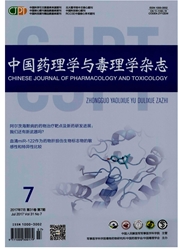

 中文摘要:
中文摘要:
中医药具有以整体观和辨证论治为特色的理论体系和几千年的临床实践经验,中医药现代化亟需建立符合其整体特点的科学研究方法。随着医学与生命科学研究步入大数据时代,系统生物学、多向药理学、生物信息学等多学科快速发展,网络药理学作为药物研究的新模式应运而生,其整体性、系统性的特点与中医药整体观、辨证论治、组方配伍的原则不谋而合。网络药理学从整体的角度探索药物与疾病间的关联性,强调从“单靶标”向“网络靶标”研究模式的转变,因此,它与中医药的有机结合是一个富有原创性的研究方向。本文简要分析和论述了网络药理学在中医“理法方药”诊疗过程中的有关研究进展,以及中药网络药理学面对的挑战,并对进一步研究提出了一些建议。
 英文摘要:
英文摘要:
Traditional Chinese medicine (TCM), a comprehensive medicinal system, is characterized by holistic theory that emphasizes the regulation of the integrity of the human body and the interactions between human individuals and their environments. The diagnostic and therapeutic methods of TCM are based on the differentiation of syndrome (Zheng in Chinese) and the use of herbal formula (Fang-Ji in Chinese). There is an urgent need to develop scientific research methods in accordance with the above characteristics for TCM modernization. In the era of big data and with the rapid progress in systems biology, polypharmacology and bioinformatics, network pharmacology has emerged as a promising drug discovery approach that takes the same view as the theory of TCM. This methodology has explored correlations between drugs and complex diseases from the perspective of the holistic theory and has highlighted the paradigm shift from "one drug, one target" to "network target". Thus, it is an original idea to combine network pharmacology with the modern research of TCM. This paper briefly analyzed and discussed the progress and major scientific challenges in network pharmacology applied to TCM diagnosis and treatment. To promote the development of TCM network pharmacology, several suggestions were also raised.
 同期刊论文项目
同期刊论文项目
 同项目期刊论文
同项目期刊论文
 期刊信息
期刊信息
